Doral has its Cadet Squadron of Civil Air Patrol, the official auxiliary of the U.S. Air Force
Integrity, volunteer service, excellence, and respect are its values
By: Diana Bello Aristizábal
Now, Doral has its own cadet program for children between the ages of 12 and 18 that operates under the command of the Florida Wing Civil Air Patrol and registration is open. This is an ambitious project that is based on military training, incorporating values and the development of skills, on different fronts, with the purpose of helping young people to better prepare for life.
Doral Cadet Squadron is a new cadet program for children between the ages of 12 and 18 that operates under the command of the Florida Wing Civil Air Patrol and registration is open. This is an ambitious project that is based on military training, incorporating values and the development of skills, on different fronts, with the purpose of helping young people to better prepare for life.
The Civil Air Patrol, which supports this educational program, was established on May 26, 1948, as the auxiliary of the U.S. Air Force. Since then, 1,000 hometown squadrons have been created across the country, including Florida.
But although there are several squadrons nationwide, the one in Doral is beginning to project itself already as an innovative one that will go far beyond what others normally offer. For example, members who are at least 16 years old and follow the entire program will be able to obtain a pilot’s license through Doral CAP.
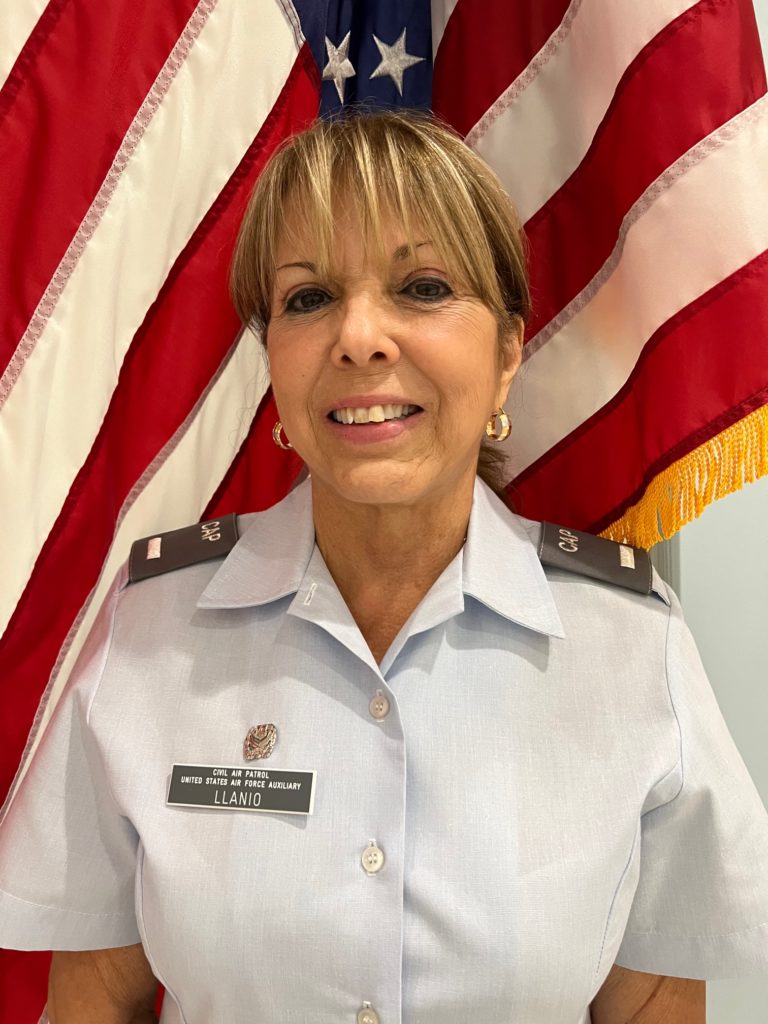
“This didn’t exist before and it represents a big amount of money-saving for families who wish to embark on this path, since they would only pay for a mandatory exam, but the training would be covered by the Air Force,” explains Lt Idania Llanio, Commander and 1st Lt of the Doral Cadet Squadron.
On the other hand, it is noteworthy that in a very short time the program has already recruited 12 volunteer adult instructors who will offer their time, experience, and knowledge to the youth.
According to Llanio, who was a commander of the previous Sweetwater CAP from 1995 to 2006, managing to gather so many volunteers in a matter of months is not an easy task to accomplish, and on this, the Doral Cadet Squadron came in strong. “From the beginning, the team has shown a great commitment and enthusiasm that is not always seen.”
To become an adult member of the squadron, those interested must go through training, pass several exams and undergo an interview in order to verify if the candidate has what it takes to assist in the youth education.
Also, instructors must have an impeccable record that is analyzed by the FBI, and upon entering the program they are guided in terms of proper behavior with minors. It should be clarified that adults are not required to have a military background, because a different range of professions is valued, from police officers, healthcare workers, pilots, and teachers, among others.
“We have quite a few instructors but we value the willingness and commitment of those who want to be part of this non-profit organization that seeks to contribute to the knowledge of the youth,” says the Commander.
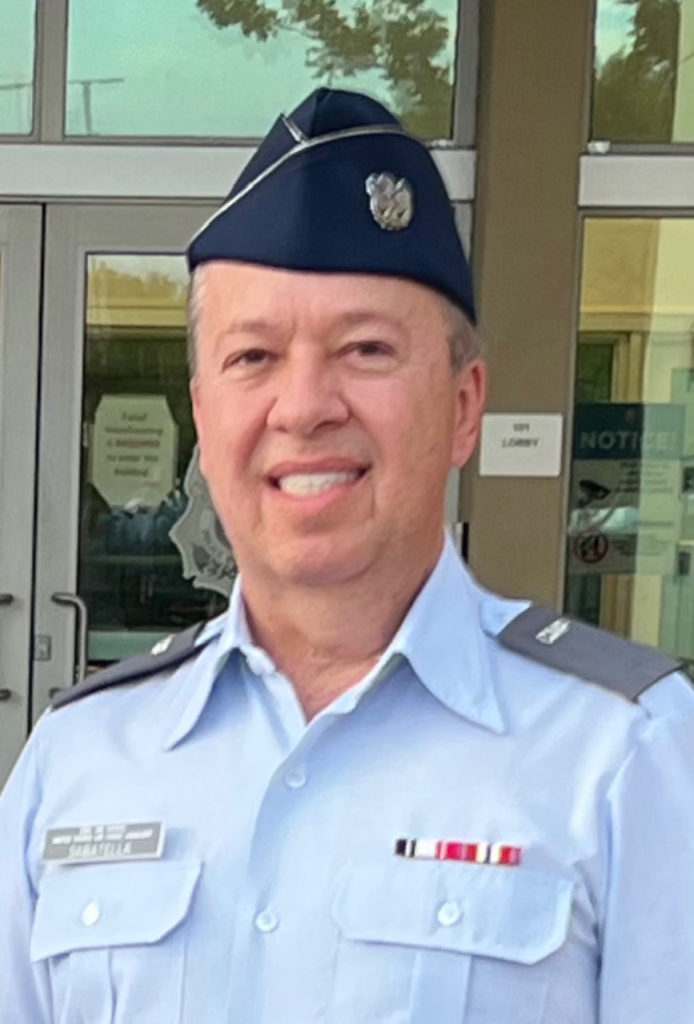
But in addition to the above, the squadron is also making a difference in the number of cadets aimed to recruit. Normally, a squadron has a minimum of 15 and a maximum of 20. The program’s goal is to host 100 or more cadets in the long term.
According to SM Ettore Sabatella, Deputy Commander of the Doral Cadet Squadron, this project is committed to the youth and it’s a pride for Doral residents to have an educational center for young people as auxiliaries of the U.S. Air Force.
“Ever since my friend and squadron commander, Lt Idania Llanio, gave us the idea of creating this program, I saw it as something that would add educational value to the Doral community, and especially to young people,” says Sabatella, who is passionated about aviation and has experience as a commercial pilot and flight instructor.
Aviation as the cornerstone of the program
Being part of the Doral Cadet Squadron is immersing in a whole world of possibilities without investing a lot of money, since becoming a member only costs 47 dollars a year for minors and 69 for adults.
Of course, the return on investment is invaluable. The youngsters entering the program, which they can take at their own pace and join at any time of the year, not only learn about aerospace education but also leadership training, physical fitness, survival skills, photography, and astronomy, among other things.
On the other hand, cadets can compete for academic scholarships to further their studies in fields such as engineering, science, aircraft mechanics, aerospace medicine, meteorology, as well as many others. Additionally, students who earn cadet officer status may enter the Air Force as an E3 (airman first class) rather than an E1 (airman basic).
In addition, each year they have the opportunity to engage in special activities and competitions at the local, state, regional, and national levels and can receive flight orientations by pilots.
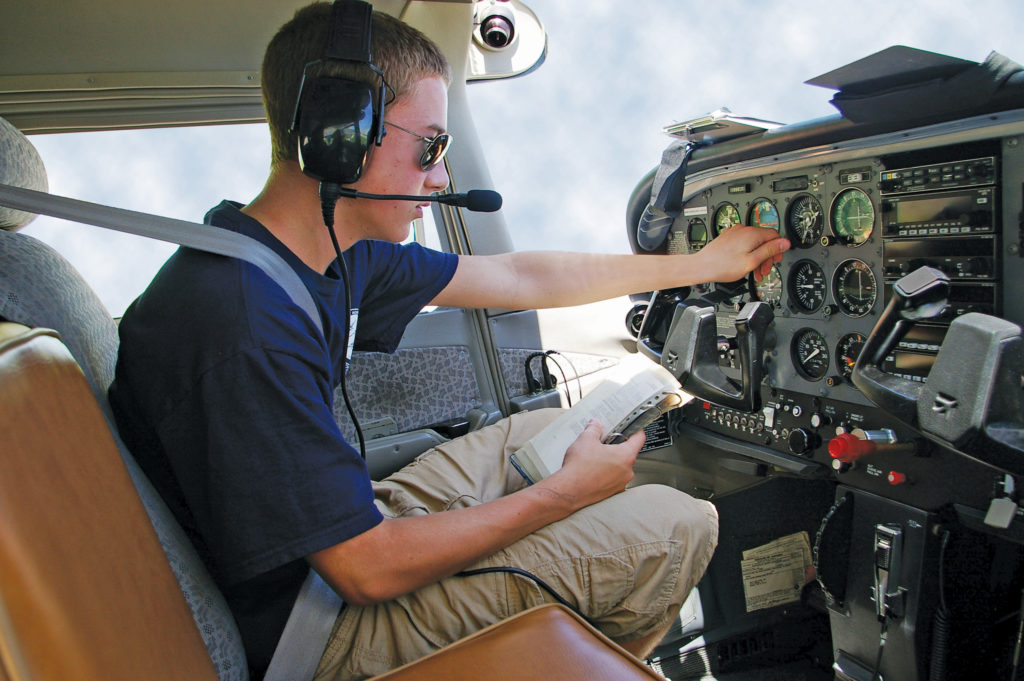 “We have a Cessna 172 aircraft assigned at Opa Locka airport with 2 primary functions: Offer practical instructional training of flight hours required by the FAA to the cadets of the squadron and act as a search, recognition and rescue center in the event of any natural disaster, air accident or of any other nature that the mission of the U.S. Air Force is required at,” explains SM Sabatella.
“We have a Cessna 172 aircraft assigned at Opa Locka airport with 2 primary functions: Offer practical instructional training of flight hours required by the FAA to the cadets of the squadron and act as a search, recognition and rescue center in the event of any natural disaster, air accident or of any other nature that the mission of the U.S. Air Force is required at,” explains SM Sabatella.
It should be noted that Doral is an aeronautical services center with approximately 25 companies dedicated to providing maintenance and construction services for electronic and mechanical parts, as well as aeronautical implements.
For this reason, this is the ideal place to have an Air Force squadron. “Under this initiative, we will work and help our community by supporting law enforcement with the collaboration of Doral residents who commit to the organization,” adds the Deputy Commander.
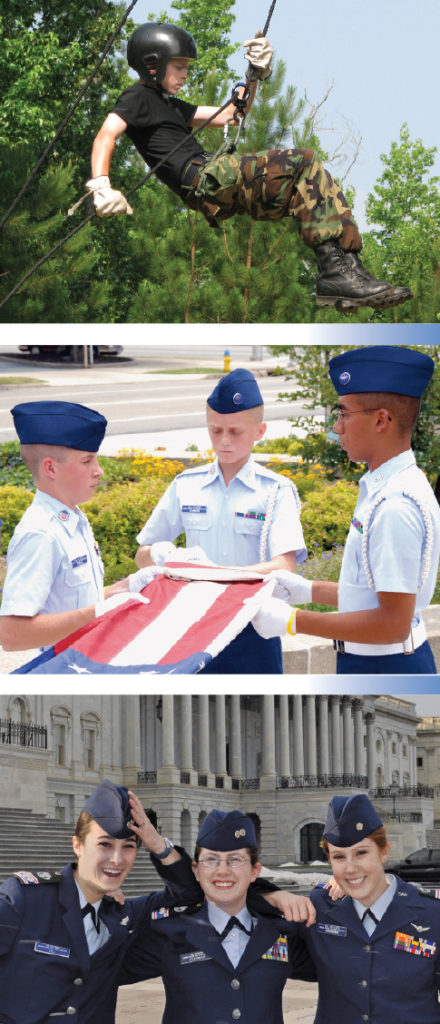 However, opportunities in aerospace education do not begin or end with flying training. According to Commander Llanio, an organization will lend its support to allow cadets interested in seeing the inside of a plane and learning about its parts to do so. “Many do not want to be pilots in the future but airplane mechanics, which represents a lucrative career,” she adds.
However, opportunities in aerospace education do not begin or end with flying training. According to Commander Llanio, an organization will lend its support to allow cadets interested in seeing the inside of a plane and learning about its parts to do so. “Many do not want to be pilots in the future but airplane mechanics, which represents a lucrative career,” she adds.
But while aviation is undoubtedly the cornerstone of the program, cadets do much more than diving into the world of airplanes. Actually, they learn life skills.
When they join the program, they also receive training on emergency services and search and rescue. In order to acquire skills in these fields, once the squadron is complete, cadets will go to a campsite one weekend a month to participate in emergency drills that, through different activities and always protected by adults, will help them learn how to deal with disasters or find missing people.
Additionally, minors will be provided with moral and spiritual support with the aim of not only instilling the values of integrity, volunteer service, excellence, and respect, but also of helping them sort out conflicts and challenges that life presents. For that, cadets will be connected with a counselor who will not be religion-focused.
The advantages of being part of this project are many. One of them is that although it isn’t mandatory to follow a military career later on, those who wish to do so have the basic knowledge to start one at a higher rank.
In addition, youngsters can rack up the community service hours they need to graduate from high school and learn how to navigate dangerous situations as well as to speak in public. “What we want is to help them walk on a straight line, give them motivation and a clear purpose, because we have noticed that they really need it,” says Llanio.
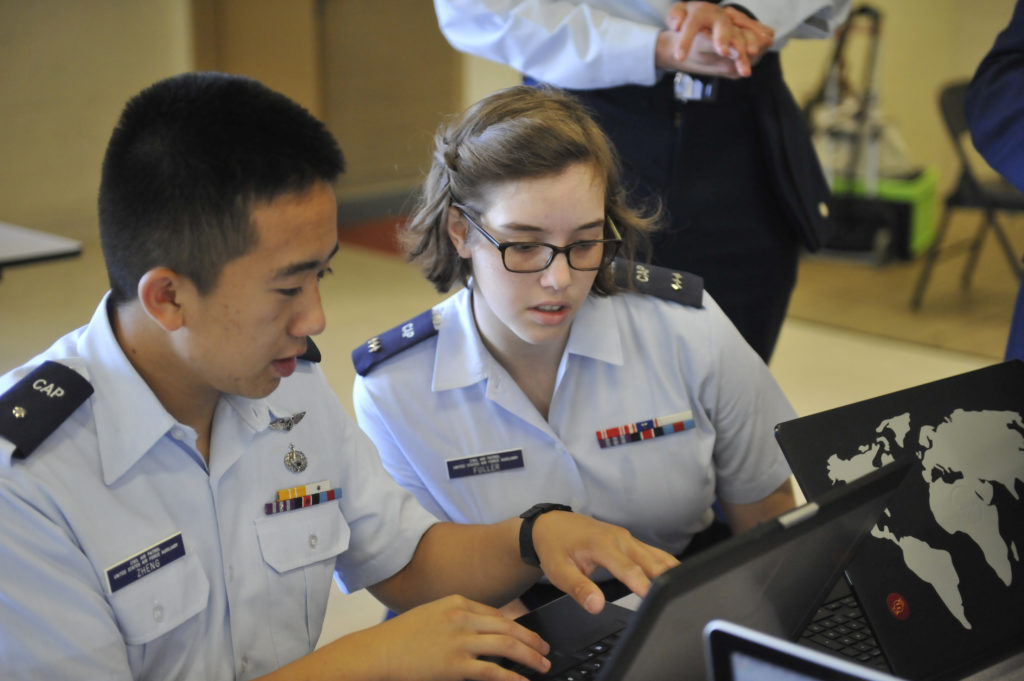 For his part, Ettore Sabatella highlights the opportunity to develop skills in the leaders of the future and to cultivate high self-esteem and a sense of pride by donning a United States Air Force uniform. “This program brings us closer to having better citizens with intellectual development for their future.”
For his part, Ettore Sabatella highlights the opportunity to develop skills in the leaders of the future and to cultivate high self-esteem and a sense of pride by donning a United States Air Force uniform. “This program brings us closer to having better citizens with intellectual development for their future.”
Those who wish to become part of this squadron must attend three classes before opting for membership at the Doral Police Training and Community Center (3719 NW 97th Ave, Doral, FL 33178) where the group meets every Thursday from 7 to 9:30 p.m.
Parents can attend these meetings if they wish so that they know what their children will learn and what families can expect. “I am very grateful with the mayor and all the elected officials who have opened the arms of this city to us and given us the facilities to meet,” says the Commander.
For more information, check the website: https://fl319.cap.gov/


Pingback: American Legion Post 346 Presented Aircraft at Doral's Squadron